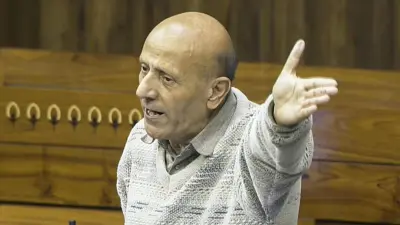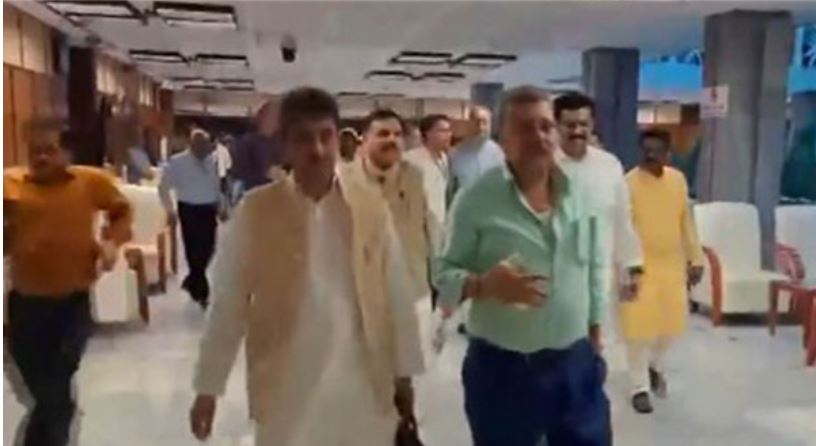

New Delhi, October 22: West Bengal TMC MP Kalyan Banerjee was suspended for one day of the Joint Parliamentary Committee (JPC) on the Waqf (Amendment) Bill 2024 after he reportedly smashed a glass bottle during a heated exchange with BJP MP Abhijit Gangopadhyay here on Tuesday.
Banerjee was suspended for one day under rule 347 by a division of vote of 9-7. It means he cannot attend the next meeting. After the suspension, he left the meeting.
Earlier, during a heated exchange with Gangopadhyay at the Joint Parliamentary Committee meeting on the Waqf Bill, Banerjee smashed a glass water bottle and hurt himself. He also threw the broken bottle towards the JPC Chairman Jagdambika Pal.
During the JPC meeting held on Waqf Bill, many eminent personalities, including retired judges and Supreme Court lawyers, were present.
It is said that Kalyan Banerjee wanted to speak out of turn. He had already spoken thrice and wanted to get a chance again during the presentation. But BJP MP Abhijit objected. This ensued a heated exchange between them, where sources said both used abusive language.
Meanwhile, Banerjee picked up a glass water bottle, hit it on the table, and hurt himself. After this, he threw the broken bottle towards the chairman. Due to the incident, the meeting adjourned for some time. Soon after, Banerjee was taken for medical aid, wherein he received four stitches in his hand, it is said.
In today's meeting, the committee is hearing views and suggestions from representatives of 'Justice in Reality ' and 'Panchasakha Prachar', both based in Cuttack, Odisha.
A delegation of five MPs from the Indian Union Muslim League (IUML) also present their perspectives on the bill.
Earlier, the committee also met on Monday, inviting officials from the Ministry of Minority Affairs to provide oral evidence regarding the bill. This meeting is part of a larger national initiative to address long-standing issues related to the management of waqf properties.
The Waqf (Amendment) Bill, 2024, aims to bring significant reforms, including digitization of records, stricter audits, increased transparency, and legal mechanisms to reclaim illegally occupied waqf properties.